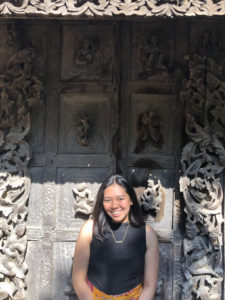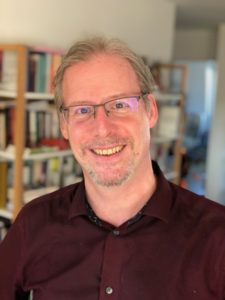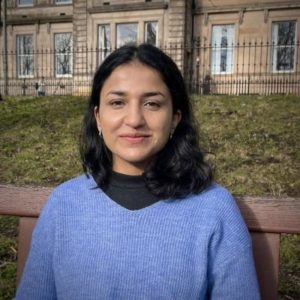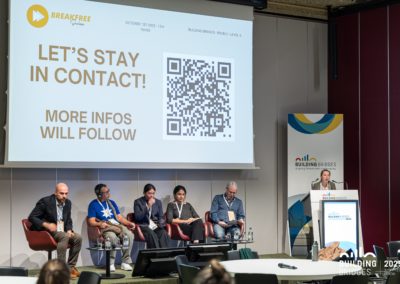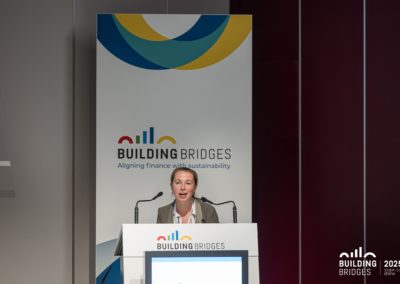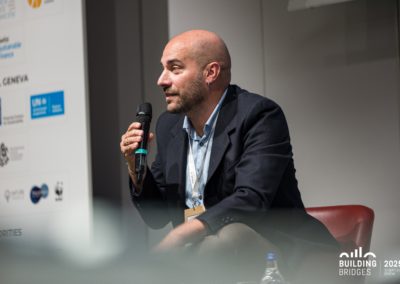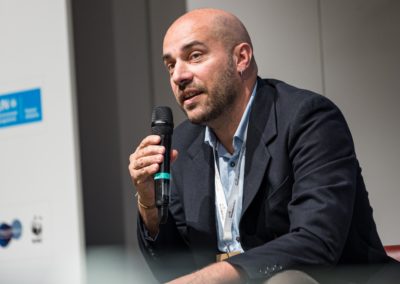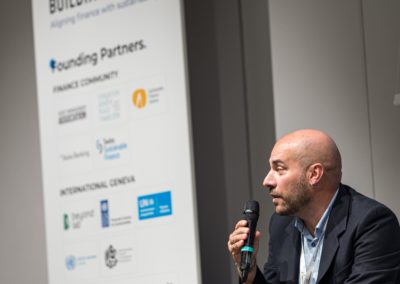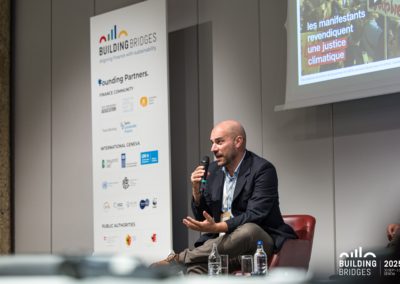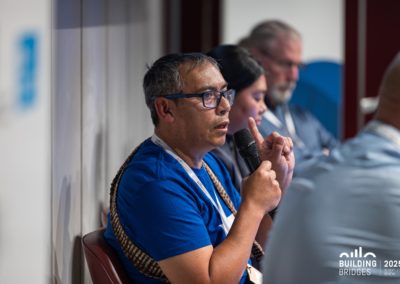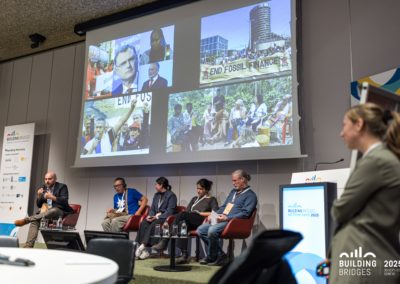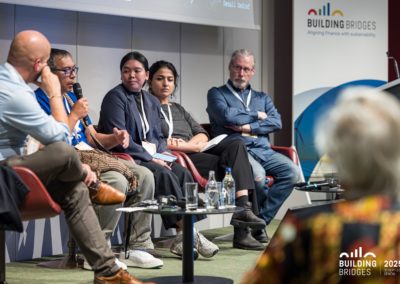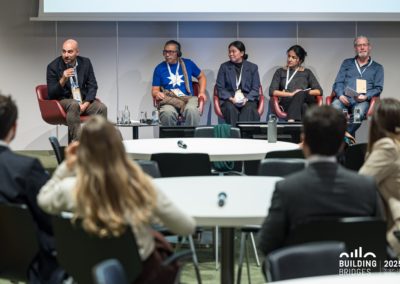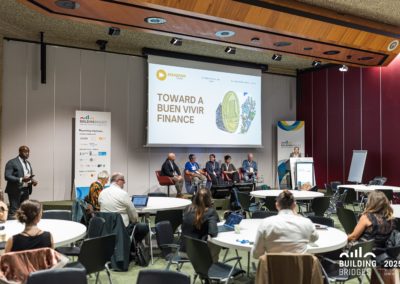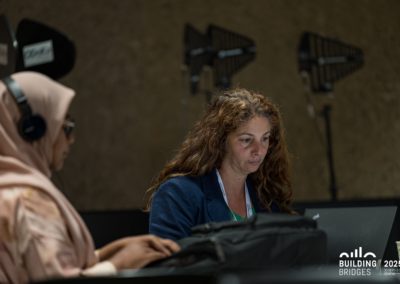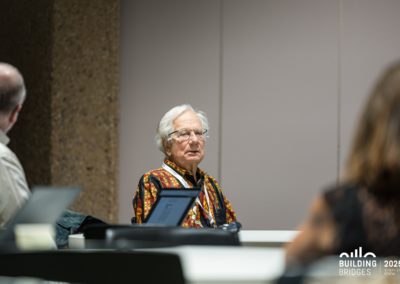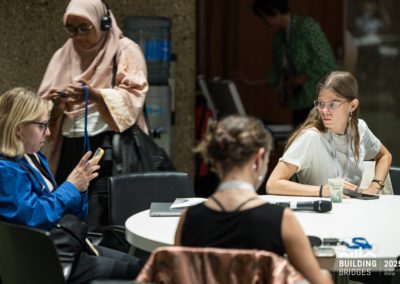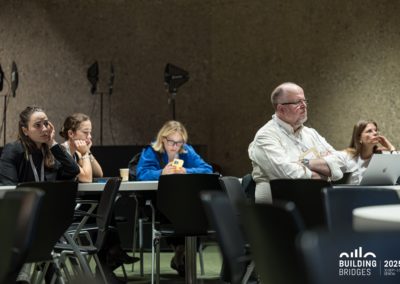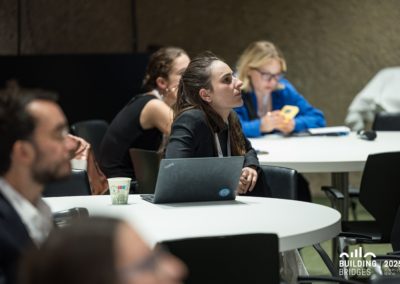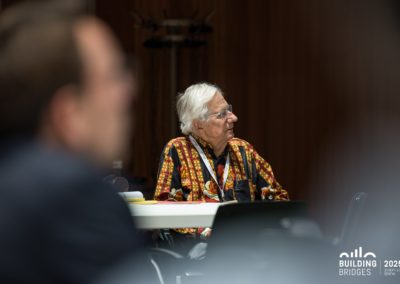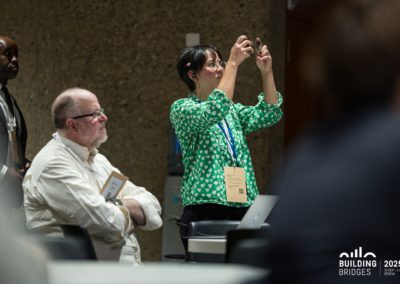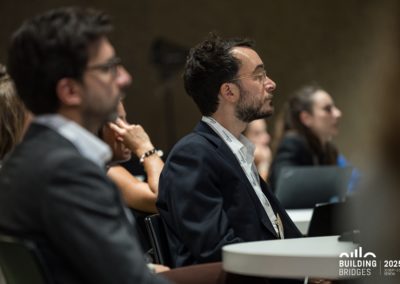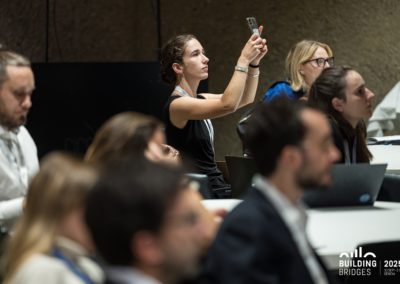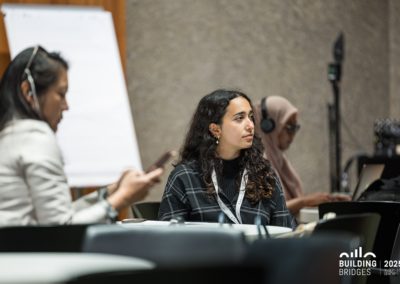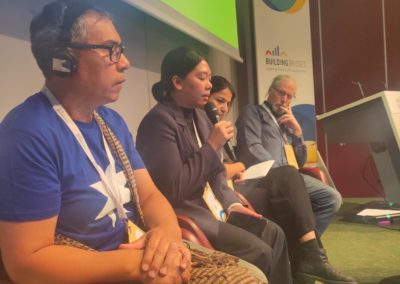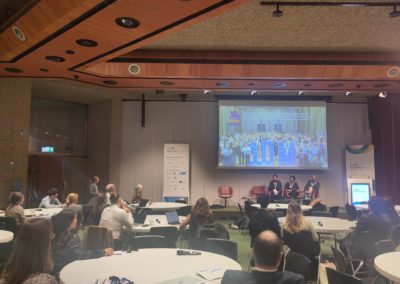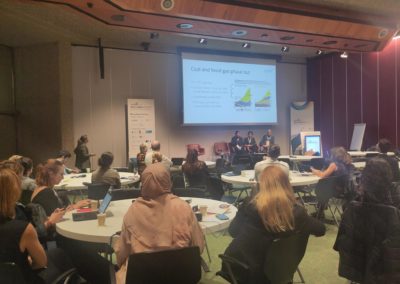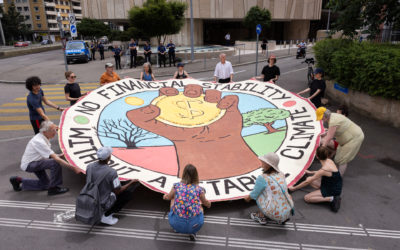"Towards a Buen Vivir Finance"
01.10.25 – Genève
Introducing the topic
The climate and biodiversity crises are unfolding alongside the rise of an illiberal wave that weakens democracy and collective rights. Finance plays a central role in this trajectory: it drives the overshoot of planetary boundaries and fuels the violations of the rights of local communities and Indigenous peoples.
Recent developments illustrate this clearly. In 2024, the Net-Zero Banking Alliance (NZBA) decided to suspend its activities, under mounting political pressure in the United States. Several major banks, including UBS, have withdrawn from the alliance in recent months, marking a turning point for an initiative that was meant to align finance with climate objectives. At the same time, investment flows continue to support destructive industries worldwide — from fossil fuel expansion to arms manufacturing — as financial institutions prioritize corporate actors who undermine climate goals and disregard human rights.
How can we change course? What forms of finance is needed to move beyond extractivist and oligarchic logics, and instead build a plural and democratic economy rooted in buen vivir — one that sustains life, respects communities, and safeguards the planet?
Framing this topic
Ten years after Mark Carney’s “Tragedy of the Horizon,” voluntary disclosure is insufficient; regulation is needed to realign capital. Finance still drives ecological degradation and inequality. This session explores buen vivir — an Andean concept of harmony with nature and collective well-being — and post-growth, permacircular models embedding money within ecological and democratic limits. We contrast “green finance” (offsets, tech, rebound effects, weak fossil fuel exclusion) with ethical finance, which applies transparent social-environmental screening and excludes harmful sectors. Ethical banks were early adopters of PCAF, a leading standard for financed emissions, offering a path to transform the financial system.
Program
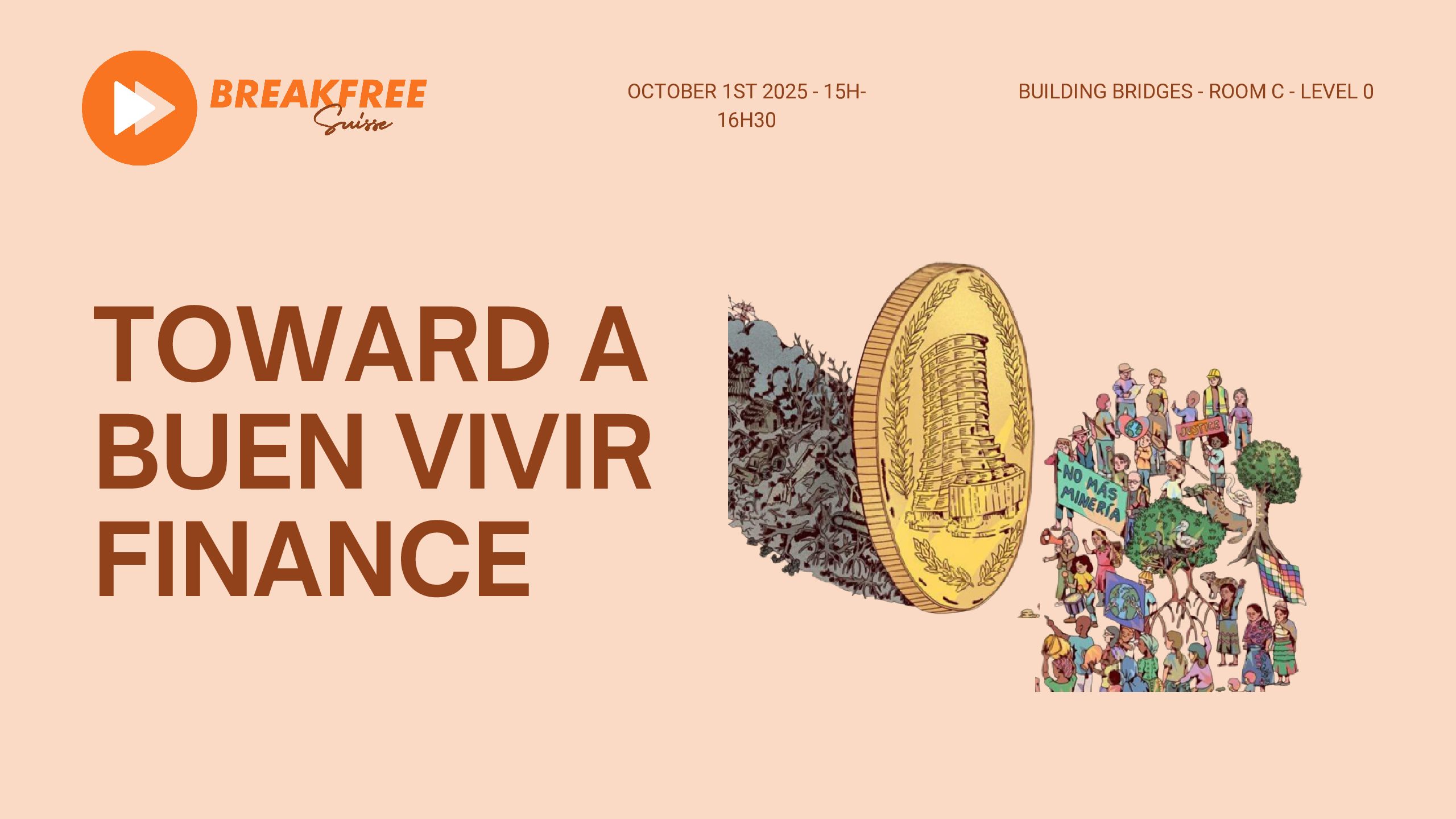
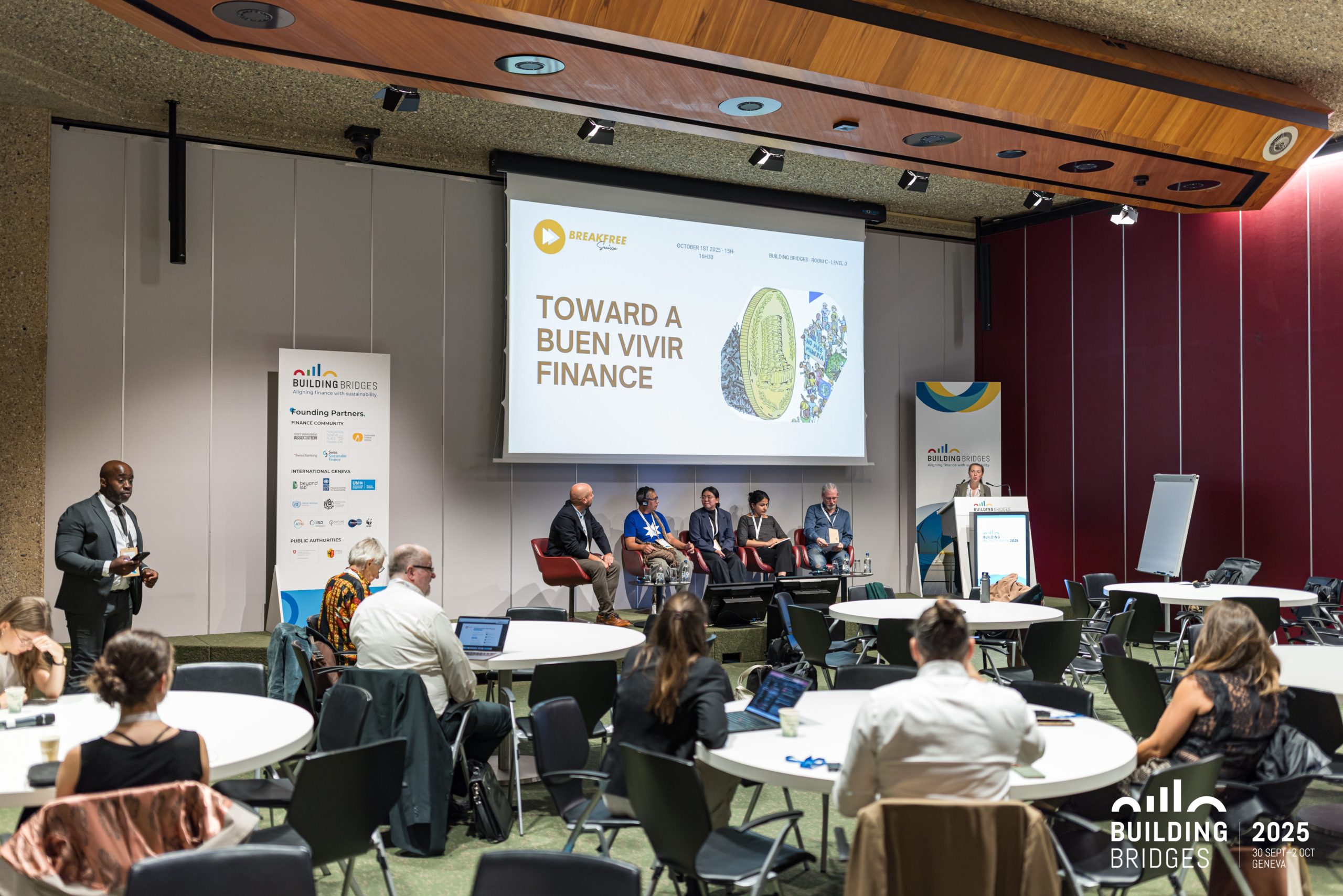
Our speakers - Angelica Dacanay
Southeast Asia Just Energy Transition Head – Center for Energy, Ecology, and Development (CEED)
Anj Dacanay is the Southeast Asia Just Energy Transition Head at the Center for Energy, Ecology, and Development (CEED). With a background in natural resource governance and a focus, she now leads collaborative efforts with civil society organizations across Southeast Asia. Her work centers on calling for a just energy transition and fighting against the expansion of fossil gas in the Philippines and throughout the region.
Our speakers - Prof. Christian Arnsperger
Professeur Ordinaire – University of Lausanne (UNIL)
Christian Arnsperger est professeur en durabilité et anthropologie économique au sein de l’Institut de géographie et durabilité (IGD) de la Faculté des géosciences et de l’environnement (FGSE). Docteur en sciences économiques de l’Université de Louvain (Belgique), il construit depuis de nombreuses années ses enseignements et ses recherches à l’interface entre analyse économique, sciences humaines et philosophie existentielle. Spécialiste des alternatives économiques post-consuméristes/ post-croissance et du lien entre transition écologique et mutation des mentalités et des modes de vie, il a également été conseiller scientifique de la Banque Alternative Suisse (BAS).
A l’IGD, le Prof. Arnsperger centre plus particulièrement ses activités de recherche autour des axes suivants:
- Théorie monétaire et macroéconomie de la durabilité
- Modes de vie durables et économie existentielle
- Permacircularité, convivialisme et durabilité
- Culture de la durabilité et savoirs indigènes
- Racines culturelles de la non-durabilité aux Etats-Unis
https://www.buildingbridges.org/speaker/christian-arnsperger/
Our speakers - Orlando Carriqueo
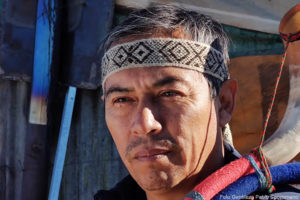 Werken (Messenger) of the Coordination of the Tehuelche Parliament of Rio Negro
Werken (Messenger) of the Coordination of the Tehuelche Parliament of Rio Negro
Orlando Carriqueo Pignen is a leading voice and the former Werken (Messenger) of the Coordination of the Tehuelche Parliament of Rio Negro. He is originally from the Elel Quimun Mapuche community, currently located in Fiske Menuco, known today as General Roca, but was born in Valcheta, which was Argentina’s first concentration camp on Mapuche territory during the “Desert Campaign” in 1879.
The Coordination of the Mapuche-Tehuelche Parliament of Rio Negro is an organization representing the communities of the province of Rio Negro, which includes 164 communities. A large number of these communities meet annually in a Parliament that appoints leaders and representatives to carry out their functions. The Parliament’s Coordination Office, divided into 4 regions, comprises eighteen members, including 16 political representatives and 2 werken.
More informations: https://riseofandes.com/fr/le-peuple-mapuche/
Our speakers - Dr. Tanushree Kaushal
Researcher and Lecturer in Feminist Political Economy of Global Finance (Dr.) – Geneva Graduate Institute and University of Bern
Tanushree Kaushal is a political economist and anthropologist whose work bridges feminist political economy, international relations, and the anthropology of finance. She recently completed her PhD at the Geneva Graduate Institute, where her dissertation Social Finance in India: Coloniality, Gender, and Labour was funded by the Swiss National Science Foundation.
Her research traces the production of financial value across the social finance chain, from international investors to women borrowers in rural India, highlighting the gendered and affective labour that underpins finance. Drawing on extensive fieldwork in West Bengal and policy institutions in New Delhi and Geneva, her work centres experiential and subaltern epistemologies as critical to theorising contemporary capitalism.
Tanushree’s recent publications include articles in Economy and Society, Globalizations, New Political Economy and Finance and Society, exploring financial inclusion, regulatory politics, and the everyday practices of intermediaries and borrowers. Her current project develops the concept of vernacular critique to examine how low-income women in India interpret and contest financial concepts such as credit, risk, and value.
She has taught graduate courses in political economy and race at the Geneva Graduate Institute and the University of Bern and worked with organisations such as the Women’s International League for Peace and Freedom and advised institutions on gender, governance and financial inclusion including UN Working Group on Discrimination Against Women and Girls and the World Economic Forum. Her research has been funded by the Swiss National Science Foundation, Hans Wilsdorf Foundation, NORRAG Global Education Centre.
https://www.linkedin.com/in/tanushree-kaushal/
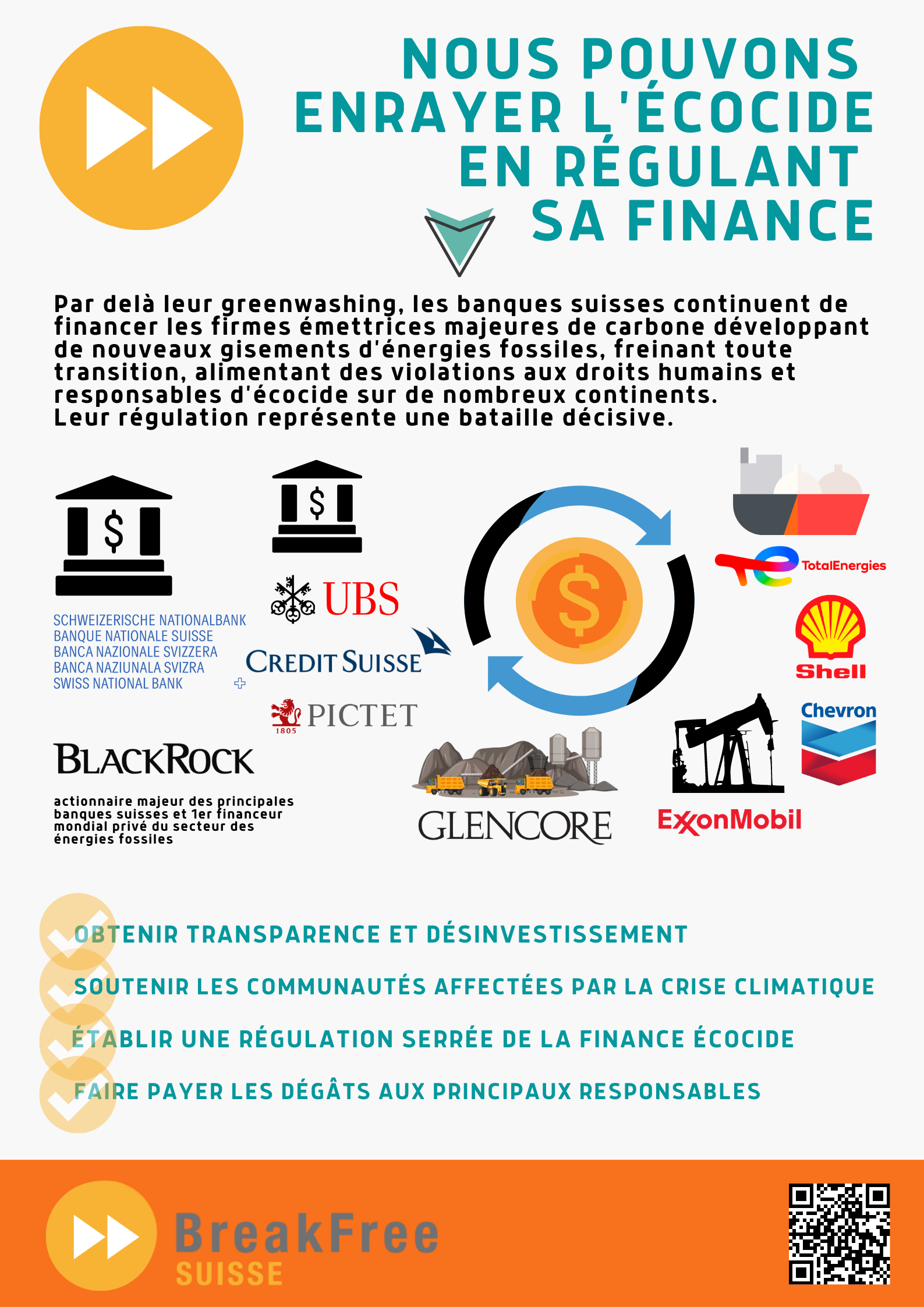
Our key takeaways:
– Our session emphasized the importance of community-based and cooperative financial models, which are widespread and should be scaled up in partnership with local communities.
– Indigenous & local community leaders from Argentina and South East Asia shared testimonies on the human and ecological cost of destructive investments (fracking, LNG expansion) and data extractivism in the Global South, highlighting impacts.
– Practical models, such as the EcoEnterprises Fund, illustrated how biodiversity-based and community-led finance can deliver measurable impact while protecting ecosystems and human rights.
– Breakout discussions were highly engaging, stressing the need for regulatory alignment, ethical finance, advancing impact investing beyond profit metrics, and systemic change that prioritizes living systems over short-term profits.
– The diversity of participants — from banking, consultancy, academia, and civil society — fostered a constructive exchange. There was broad consensus on the need to:
- Integrate biodiversity loss, human rights violation and climate crisis as critical dimensions of financial risk
- Support collaborative approaches, just transition frameworks, and community-led renewable initiatives

